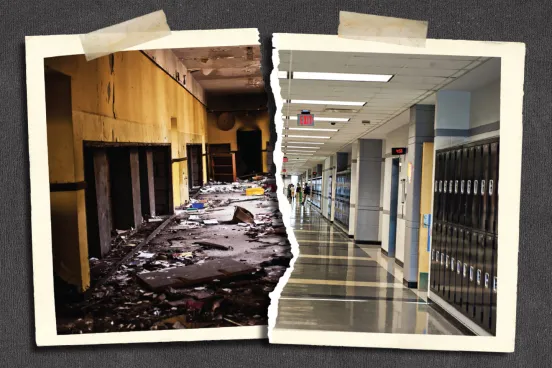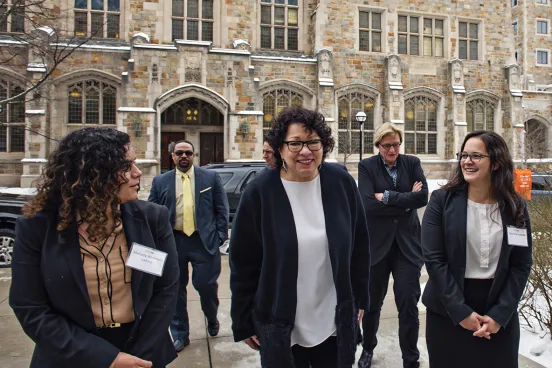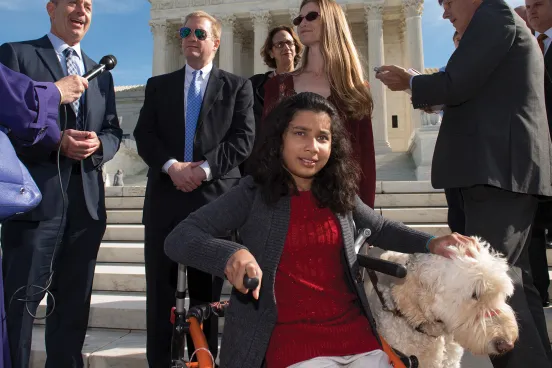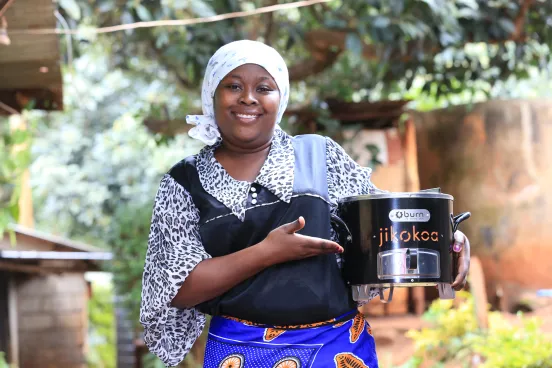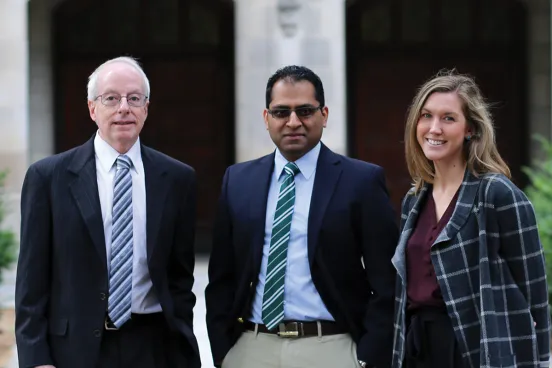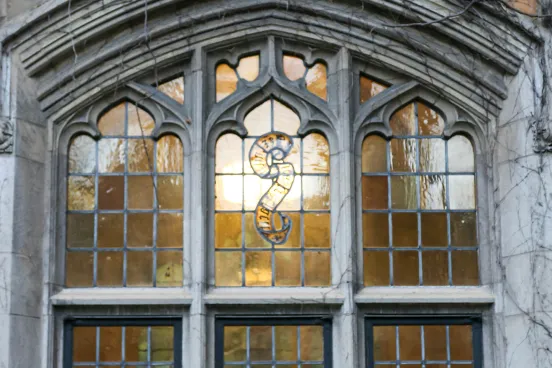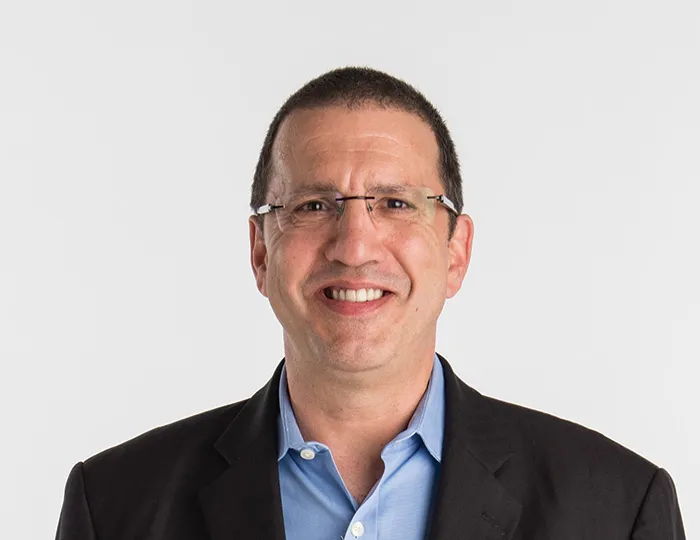
Michigan Law’s commitment to producing well-rounded, career-ready lawyers with real practice experience dates back to the launch of our first legal clinic in 1969.
The Law Quadrangle recently sat down with David Santacroce, associate dean for experiential education, to discuss how the Law School’s experiential education program has evolved in 45-plus years.
The bottom line: “It’s not what you remember,” says Santacroce. “It’s much bigger and much better.”
What sets Michigan Law’s clinical program apart?
DS: We’re effectively running a midsize law firm with 18 full-service practice areas—balanced between litigation and transactional work—from our collaborative clinic space in South Hall. Each clinic is taught by at least one full-time faculty member, but some have multiple faculty or teaching fellows. They have an obligation to provide sound counsel to the client, while creating a stellar educational experience for students. We put learning first, and we see every bit of casework as an opportunity for students to learn what good work product is and how to get there on their own. Also, our clinics offer a minimum of seven credits, which means they are intense. And we are unique in that we guarantee a clinic to every student—between 70 and 80 percent take at least one before they graduate. I’m hard-pressed to think of another clinical program that is as rigorous, broad, and deep, and still reaches such a high percentage of students prior to graduation.
Talk about the client work.
DS: Our students work directly with and for clients as first-chair attorneys. They identify issues, research their options, and choose the best one in consultation with their professor. Despite the inefficiencies of a practice focused heavily on learning, our clinics make a real impact on the legal community in southeastern Michigan and beyond. In the last academic year, clinic students provided nearly 85,000 hours of free legal services to those who need it most.
What are students learning?
DS: Students learn what lawyers do and how to do it well in an actual practice setting. Each clinic teaches students how to work collaboratively in a practice environment, as well as core lawyering competencies at play in every practice setting, from law firm to legal services. These competencies include planning, strategic thinking, problem solving, client relations, negotiation, public speaking and advocacy, investigation, and legal writing. Again, the students are out front, first-chair, with primary responsibility for their clients.
We also teach our students to reflect on what transpired, so that they become lifelong learners who will always get better at what they do. My students know I’ll intervene if I see that they are going to do something that will change the outcome of the case. Short of that, I’ll let them make mistakes in court and with clients, because only by making those mistakes and reflecting on them will they not make them again. It’s that cycle of learning that we intend to take root and spin like a wheel during the students’ time at Michigan Law and throughout their professional careers. In short, we want them to be hungry to learn from their experiences because we know that this is a trait shared by all successful lawyers.
In addition, we are teaching students about professionalism in the office and how to be good associates, which is a tricky thing. It’s a big deal to know when to go into a partner’s office and when not to. Am I the guy who is going in there every 30 seconds saying there’s a problem and not knowing what to do about it, or am I the guy who identifies a series of problems, thinks about them and does the research, and then talks to the partner about the possible solutions I’ve identified? We also teach students the importance of collaboration. They collaborate with each other, because they are working in teams of two, and they collaborate with the professor and with other clinics.
Many clinics, including Entrepreneurship, Pediatric Advocacy, Veterans, and Human Trafficking, work with students in other disciplines across the University. It’s uniquely Michigan in that collaborative way.
What exciting new things are you doing with 1Ls?
DS: Each fall, a sizeable portion of the 1L class does volunteer work at local legal services organizations, and they have a strong desire to do what real-world lawyers do as soon as they come to Michigan. We decided to address this in a pedagogically sound way that would help students connect the more theoretical underpinnings of their first year of law school with real-world practice.
For the past several years, we’ve offered the Unemployment Insurance Clinic, the only in-house clinic exclusively for 1Ls in the nation. They do full administrative trials, including the opening, closing, cross and direct examinations, client interviewing and fact investigation, and preparing all necessary pleadings. Our 1Ls don’t share their responsibilities with upperclassmen, and we don’t count the Unemployment Insurance Clinic toward the clinic guarantee, which is for upper-level, deeper-credit clinics that we strongly encourage all students to take.
We also are in our second year of an experimental program that is bringing live-client work into mandatory 1L legal practice classes. In about half of these classes, we’re bringing in skilled practitioners from the community to teach core lawyering competencies. For example, instead of doing a simulated interview, students learn about client counseling in class and then interview real people in need of legal help at local legal services organizations. Students learn how to communicate what they learned in an immediate and comprehensible way to lawyers in those organizations, so they can decide whether and how to help those potential clients. The students also memorialize the client interactions; the memos are utilized by the legal services organizations, and they are reviewed by each student’s legal practice professor, who provides detailed feedback on how to improve as a real-world legal writer.
Finally, we’re helping students make the theory-practice connection in their more traditional 1L classes. Every 1L has a core class that, several times over the semester, is co-taught by a clinician. For example, civil procedure students will study case law and doctrine about what constitutes a sufficient complaint. Then, in a co-taught class, they’ll learn how to read and actually draft a complaint that will stand up in federal court. We’re doing this in contracts, too, and, next year, in criminal law.


